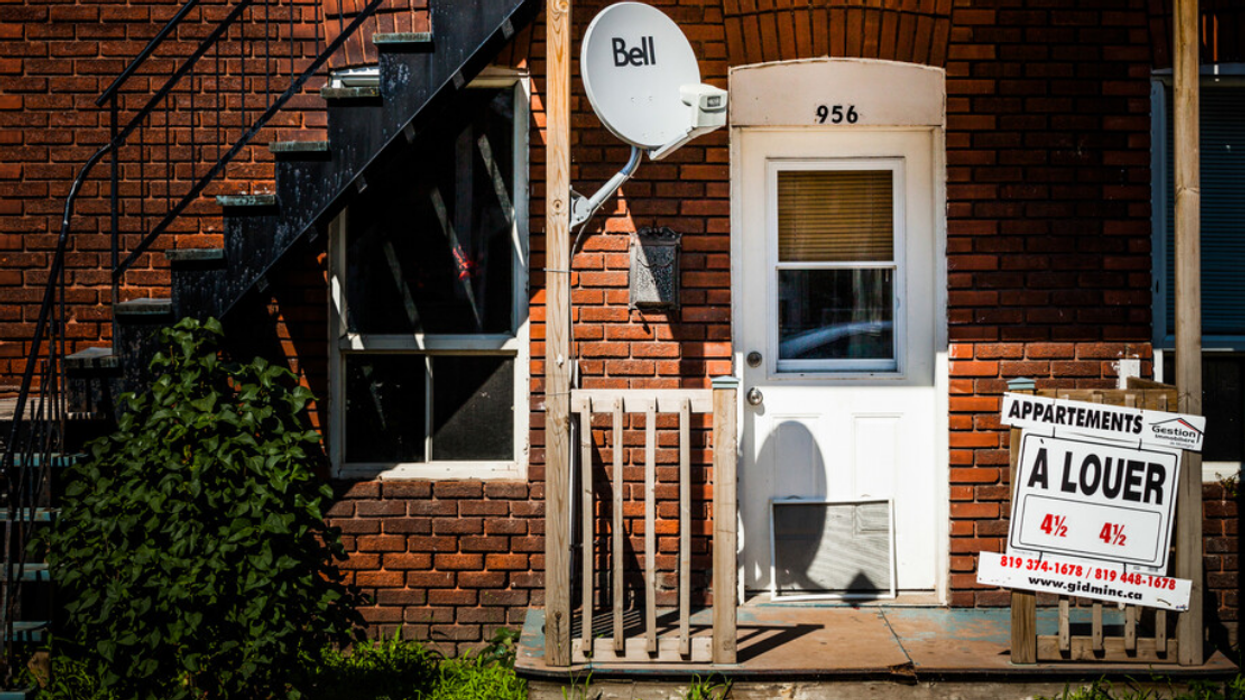Rent increase in Quebec: Here's what to do if you don't want to pay
The notice deadline for July 1 leases is coming up. 💰

A Quebec apartment for rent.
Since most Quebec leases renew on July 1, and landlords are generally required to give a minimum of three months' notice if they're increasing your rent, chances are you've either received a rent increase notice recently or are anticipating receiving one by the end of the month.
If you haven't received a written notice three to six months before your lease ends and you're on a 12-month lease, congratulations! Your rent isn't going up right now. Your landlord can't request a rent increase until next year and your lease will automatically renew under the same conditions.
However, if you're on anything shorter than a 12-month lease, your landlord can send you a notice one to two months before the end of your lease (or 10 to 20 days if you're in a boarding house), so you may not be out of the woods just yet.
The good news is you don't have to accept a rent increase. If you're unwilling to pay as much as your landlord wants, you have some options. Whatever you choose to do, just keep in mind that you only have one month to respond to your landlord in writing. If you don't respond within the month, your lease will automatically be renewed with the rent increase applied.
In an updated statement on tenants' rights, the City of Montreal recommends always keeping "dated and signed proof of your discussions with your landlord." The info for this article comes from that statement as well as from Éducaloi, the Comité d'action des citoyennes et citoyens de Verdun and the Comité logement Plateau Mont-Royal.
Option 1: Refuse the increase and find another place to live
This may seem obvious, but we do have to mention it. If your lease is coming to an end, you are under no obligation to stay put. Let your landlord know in writing within a month of receiving the notice and start apartment hunting.
Option 2: Refuse the increase and stay put
Talk to your landlord
If you're choosing to refuse the rent increase and want to stay in your dwelling, the City recommends starting with a conversation with your landlord to see if you can settle things by negotiating between yourselves. Again, don't forget to obtain signed and dated proof of what you discuss.
If you're not feeling confident about your rights or the way you should approach the conversation, the City suggests contacting a tenant rights advocacy group for help, such as Regroupement provincial de défense des droits des locataires or one of the housing committees listed on the Front d'action populaire en réaménagement urbain website.
Get in touch with the Tribunal administratif du logement
If you and your landlord can't reach an agreement, they need to contact the Tribunal administratif du logement (TAL), which will take charge of setting the rent.
Your landlord has one month to complete this process. During that time, you have the right to stay in your dwelling at your current rent as long as you've informed your landlord in writing within the proper time frame.
Keep in mind that while there is no fixed rate for rent increases in Quebec, the TAL establishes a set of guidelines each year to determine what is considered a reasonable increase based on yearly fluctuations in the average costs of energy, maintenance and building services, among other factors.
In 2024, the TAL says to expect an average rent increase of around 4% for an unheated or electrically heated place.
You can use the TAL's calculation tool (available in French only) to try to assess whether or not your increase is reasonable.
That said, you may not have access to certain information from your landlord that's needed to calculate a fair rent increase. In that case, you may want to track down a local rent increase workshop for assistance. Workshops are sometimes offered by Concordia University's Housing & Jobs Resource Centre as well as the Comité logement Plateau Mont-Royal and various local community organizations.
In Greater Montreal, you can also call 211 and the team will refer you to more resources that can help.
Remember that once the TAL has set the rent, you have to stick with your lease — no cancelling at that point unless your landlord agrees — so think carefully about your next moves before deciding what's right for you.
This article's cover image was used for illustrative purposes only.
- Bonkers Rent Increases In Canada Are Outpacing Wages — Here's Where You Might Be Most Screwed ›
- 6 things I learned about Montreal rent that changed how I hunt for apartments - MTL Blog ›
- 6 Quebec cities where house prices are going up the most - MTL Blog ›
- Parks Canada is hiring for the 2024 summer season and you can earn up to $30/hour - MTL Blog ›
